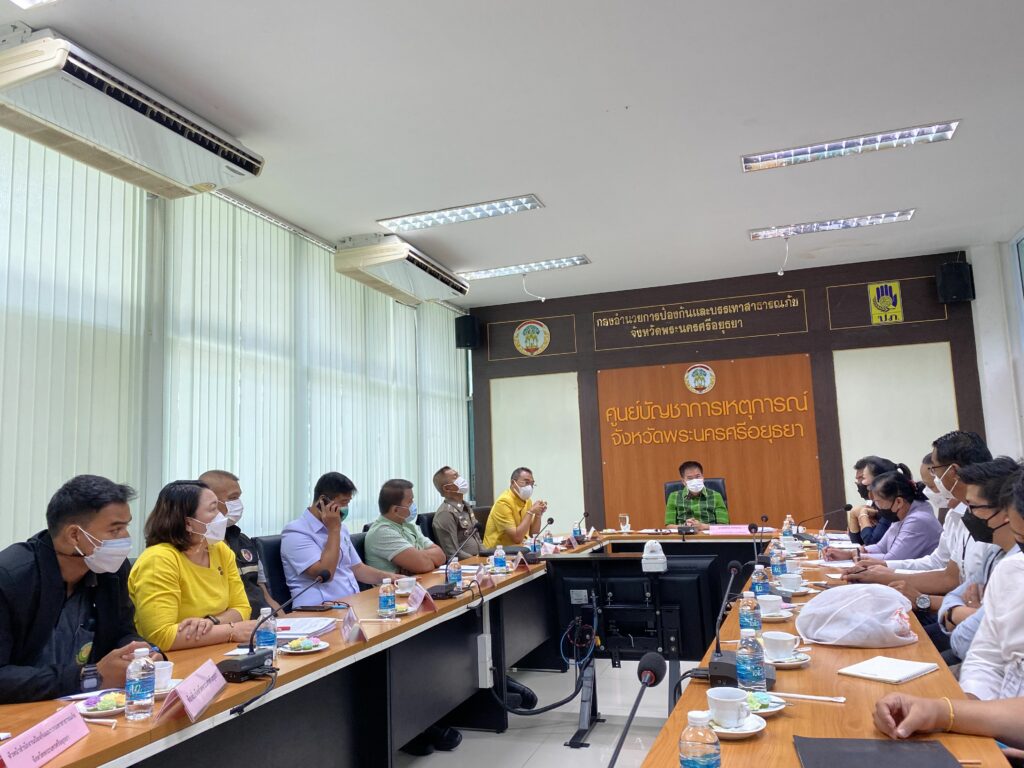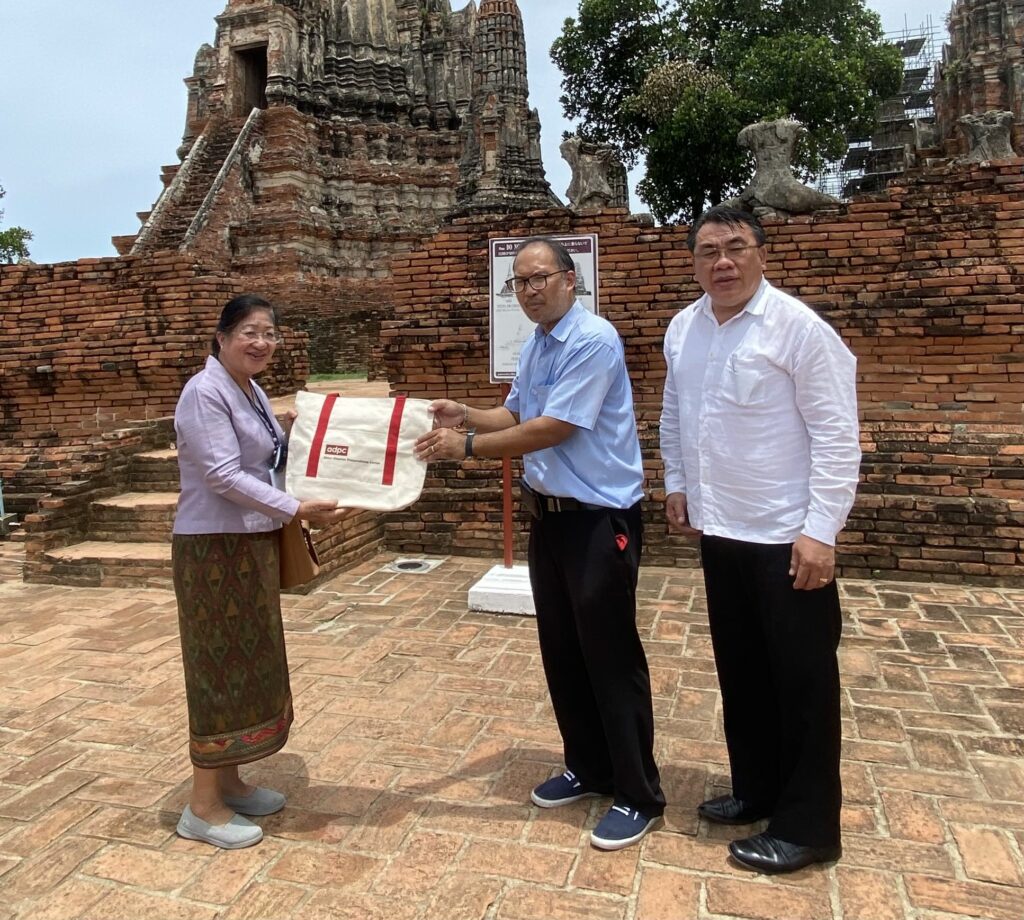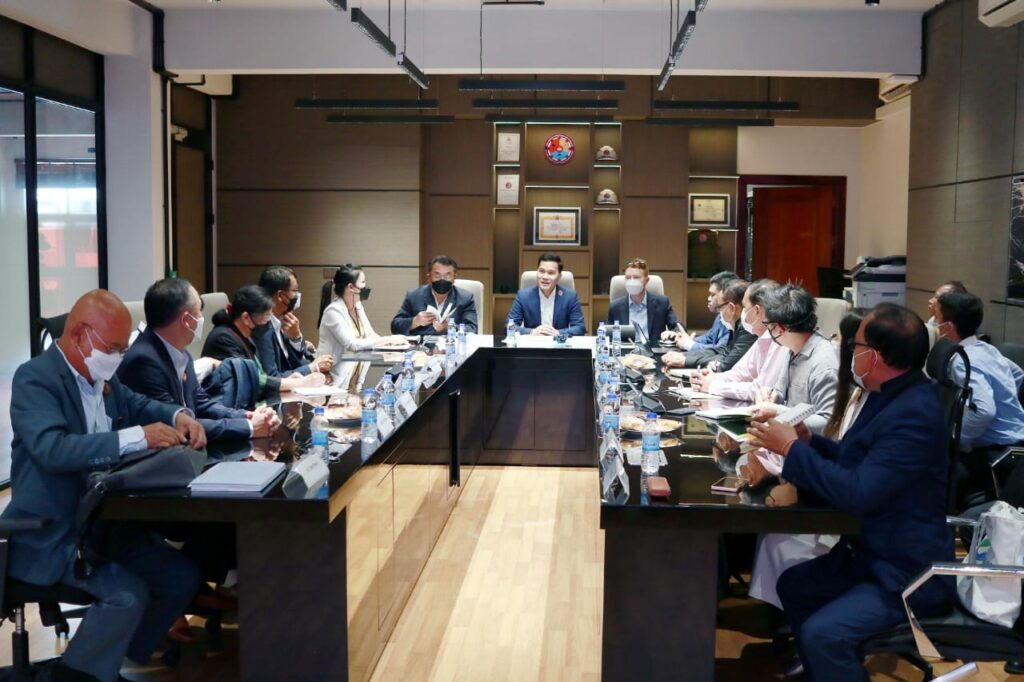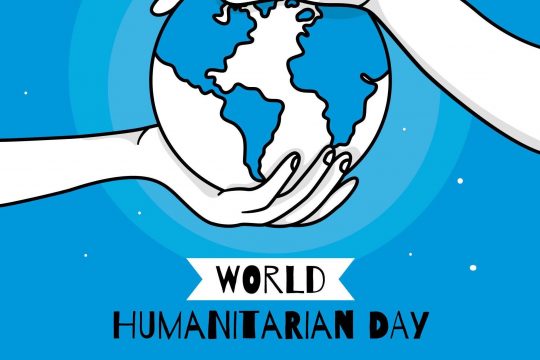Representatives from the Lao PDR government, civil society, and private sector participated in a week-long, two-country interactive orientation in Thailand and Cambodia between 5 – 9 July 2022.
The visit was part of Asian Preparedness Partnership’s (APP) South-South knowledge exchange initiatives aimed at facilitating cross-learning between countries by providing opportunities to share their knowledge and experience. The program makes continuous efforts to integrate new ways of thinking about multi-stakeholder partnership with dialogues centered around innovation, gender and rights-based approaches, and localization. Elevating the capacities of local actors in disaster risk management (DRM) roles has always been at the core of APP’s mission. The partnership has extended the regional network into Laos to broaden its approach to localization through comprehensive DRM and transnational knowledge sharing.

The beginnings of a multi-stakeholder approach in Laos, following the APP model, emerged in July 2021 with a Memorandum of Understanding (MoU) between the government (Department of Social Welfare) and ADPC. . Sopha Soulineyadeth, Disaster Management Consultant in Laos, Asian Disaster Preparedness Center (ADPC), believes that the coordination between partners will continue to grow with time and more documented approval, “The multi-stakeholder partnership has now turned to focus on action plans. These partners are committed to jointly develop Terms of Reference (TOR) for a coordination mechanism with clearly defined roles and responsibilities.” The goal of the knowledge-sharing experience in Thailand and Cambodia was to continue building the relationships between Lao representatives and enhance their collective DRM capacity.
The visit commenced with the ‘Introduction to Knowledge Exchange Visit & Program Management Meeting’. Participants were familiarized with the APP ecosystem and reflect on the status and progress of multi-stakeholder collaboration in Lao. They outlined priorities and next steps for institutionalizing the partnership through group brainstorming and discussions.
The remaining activities in Thailand included a meeting at the Department of Disaster Prevention and Mitigation (DDPM) and a field visit in Ayutthaya Province. The participants learned about the benefits of incident command systems (ICS) and early warning systems (EWS) for disaster risk reduction (DRR) during the visit. Soulineyadeth underscored the value of these insights as the Lao partnership continues to formally materialize, “The Lao delegation, and specifically, the Department of Social Welfare, learned from DDPM about the functions of an emergency operation center (EOC) and how they can apply this knowledge as they develop guidelines and SoPs for their own center.”


On Thursday, 7 July, the group traveled to Phnom Penh to gain immersive learning insights on how the Preparedness Partnership of Cambodia (PPC) connects government, civil society, and the private sector. They captured this by meeting with all PPC sector partners, namely the National Committee for Disaster Management (NCDM), the Cambodian Humanitarian Forum (CHF), and the Federation of Associations for SMEs of Cambodia (FASMEC). Each stakeholder offered a unique perspective on the cross-sector collaboration developed under PPC over the last five years. Sok Phoeuk, Country Manager in Cambodia, ADPC, identified a few key PPC activities that the Lao partnership would benefit from replicating: “Joint planning and implementation, mainstreaming DRM in the private sector, and sustainable fundraising are some of PPC’s successes that can be transferred in Laos.” Soulineyadeth was pleased with the prospect of operationalizing PPC practices in the Lao partnership, “Lessons learned from the exchange visit in Cambodia can be adapted to fit with the Lao context as the Lao partnership becomes established.”
Knowledge sharing is one of seven dimensions of change for APP. Kilian Murphy, Program Lead on Innovation, ADPC, is confident that the Lao delegation’s experience observing and learning from PPC prompted new perspectives, “The delegation from Laos were able to interact directly with their counterparts in Cambodia to learn about the good practices, challenges, and opportunities towards mobilizing partners and establishing a similar platform in Laos.” Through this South-South learning partnership, the Lao group improved its ability to develop effective programs, documentation, and communications. With this new knowledge, a potential Lao partnership under APP is made more aware of the challenges and opportunities that accompany a multi-stakeholder DRM strategy.


